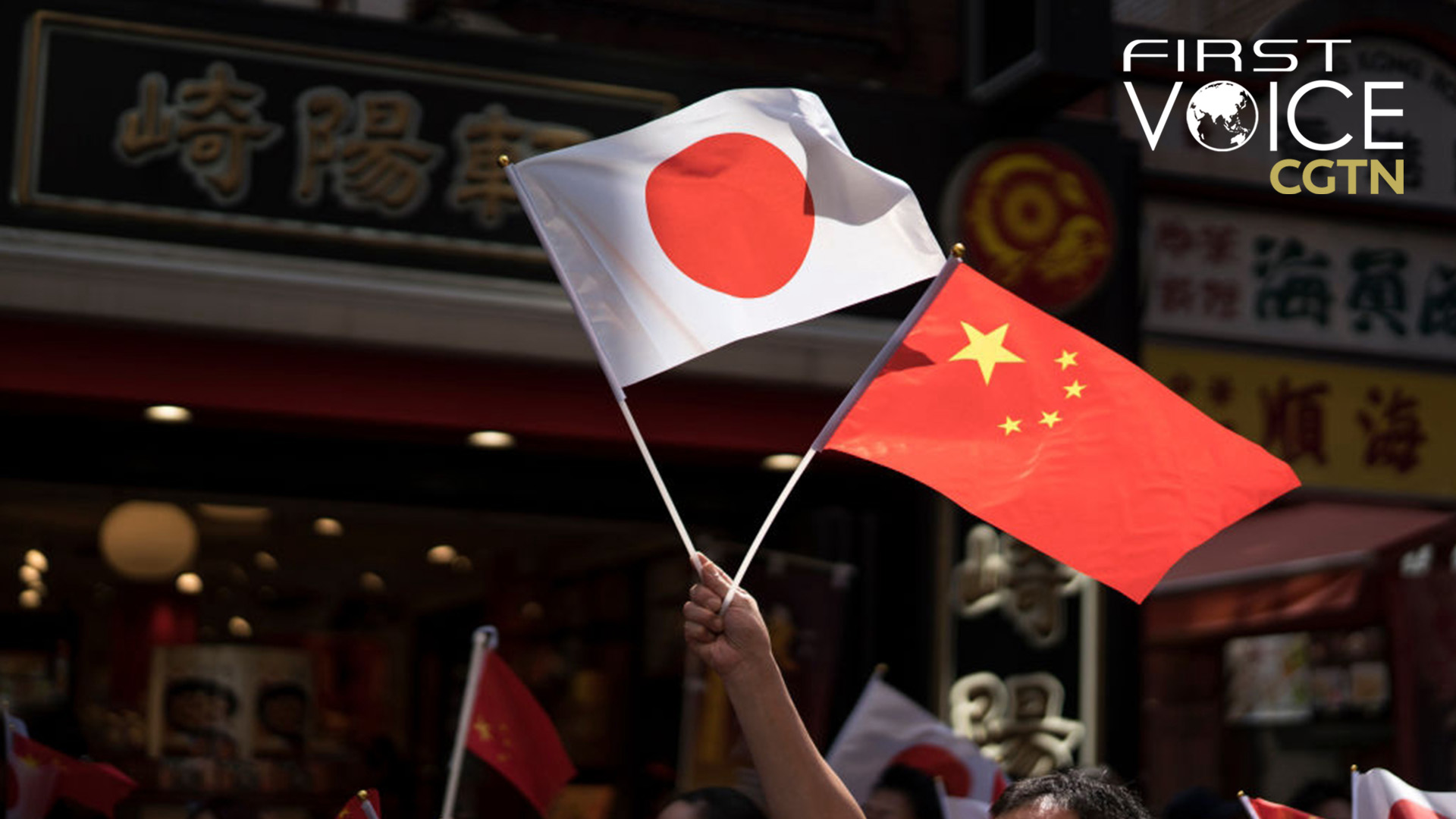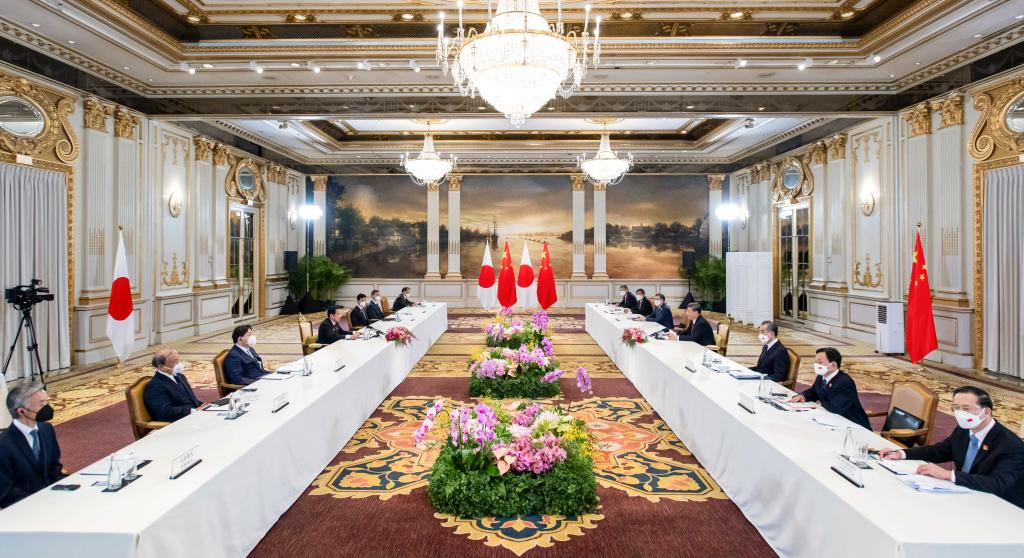
Editor's note: CGTN's First Voice provides instant commentary on breaking stories. The column clarifies emerging issues and better defines the news agenda, offering a Chinese perspective on the latest global events.
Japan's Minister for Foreign Affairs Yoshimasa Hayashi is visiting China from April 1 to 2. He is expected to meet with the Chinese leadership and Chinese Foreign Minister Qin Gang will hold talks with him.
And just a day before his visit, Japan announced that it will restrict the exports of 23 types of semiconductor manufacturing equipment. Though not targeting China specifically, but, as Reuters described it, the move is widely recognized as Japan "aligning its technology trade controls with a U.S. push to curb China's ability to make advanced chips."
The rapid succession of these events taking place provides a glimpse into the complexity of China-Japan relationship. Weight of the two countries' history often casts a shadow over the engagements between them. Japan's dependence on the United States for security adds a layer of instability to the China-Japan relationship. And Japan's accelerating return towards acquiring de-facto full military autonomy harkens back to the days of bloodshed it caused in China before.
Yet, as the two countries mark the 45th anniversary of the signing of the China-Japan Treaty of Peace and Friendship, China and Japan have come a long way. China is Japan's largest trading partner, while Japan is China's fifth largest one. In 2022, China-Japan trade volume hit $357.4 billion. As of November 2022, Japan has invested and established more than 55000 companies in China. Before the COVID-19 pandemic hit, the two countries engaged in heavy people-to-people exchange. In 2019, nearly 12.8 million people traveled between the two countries.
Last year, at the opening ceremony of the seminar to commemorate the 50th anniversary of normalization of diplomatic relations between China and Japan, then Chinese Foreign Minister Wang Yi said that both sides should shoulder the responsibility empowered by history to make the right choice that fails no one and promote bilateral ties to a higher and wider platform to break new ground for new China-Japan relations.

Chinese President Xi Jinping meets with Japanese Prime Minister Fumio Kishida in Bangkok, Thailand, November 17, 2022. [Photo/Xinhua]
The new ground for the China-Japan relations requires finesse. It demands careful and balanced navigation through the geopolitical whirlwind that is engulfing the two countries.
Most noticeably, as the United States become increasingly hostile towards China and seeks to contain China, Japan, the linchpin of that strategy, is making China-Japan relations more difficult to run stably by positioning itself closer to the United States' agenda. Militarily, Japan and the United States are becoming closer and closer allies. It is reported on March 30 that Japan's Ground Self-Defense Force and U.S. Marines held a live-fire training as part of Exercise Iron Fist.
And for Japan itself, the Self-Defense Force is looking more and more like a full military. In mid-December of 2022, the "most ambitious and rapid expansion of military power in Japan since the country's Self-Defense Forces (SDF) were created in 1954" was approved, based on Council on Foreign Relations' description. Traditionally, one percent of Japan's GDP goes to national security. Prime Minister Fumio Kishida promised to raise it to two percent.
As Japan's military increasingly gains strength and flexes its muscle, Tokyo and Washington seem to have forgotten that a critical linchpin to security and stability in East Asia after the World War II was the de-militarization of Japan and the agreement that the Self-Defense Forces would be only intended for self-defense.
For China, Japan is a neighbor that presents both opportunities and challenges, with which a complicated history and present relationship have to be managed. It is a relationship that has a strong emotional component but is also rooted deeply in pragmatic cooperation. To move this relationship forward, both sides should keep an open eye towards each other's needs and demands, and beware of other influences that might not serve the Asian neighbors' true interests.

 中文
中文



